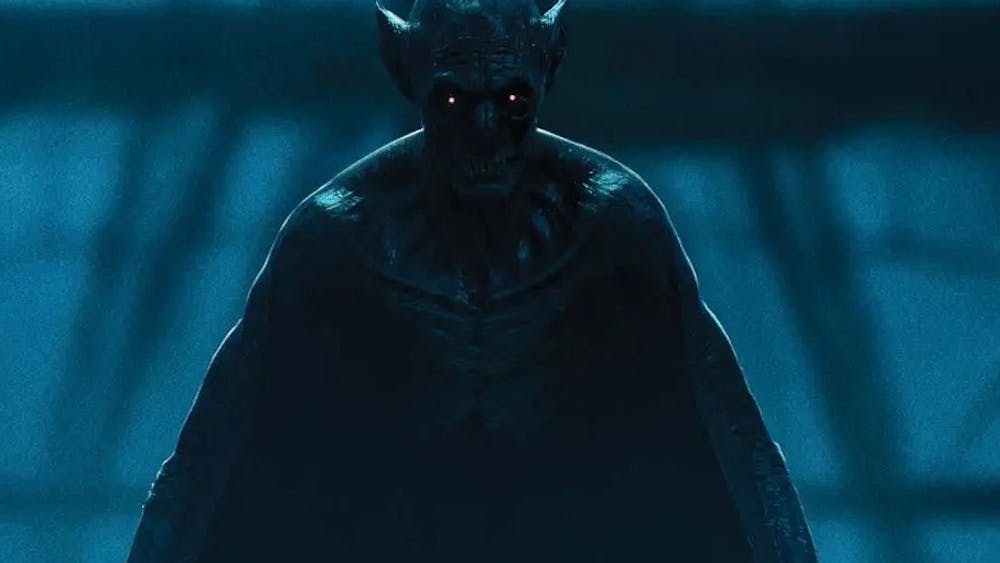Wednesday night saw the Concert Orchestra in an unique concert atmosphere. Instead of the usual overture, concerto, symphony sequence all under one conductor, Wednesday's concert saw six different pieces under the batons of six different conductors. Although somewhat strange, this unique setup gave the audience a sort of "sampler-plate" of a broad range of musical styles and conducting personalities. And here's what was on the menu for Wednesday night:\nItem 1: Overture to Mozart's "The Magic Flute" conducted by Jonathan Canaan. Mozart was indeed a prolific composer. His music definitely has a personal flair to it, but the only problem is that there's so much of it that it is obvious that Mozart wasn't at his full creative potential in many of his works. That is not so in this one, however. This overture has Mozart at his best. The melodies are beautiful, infectious and very Mozartian. And it certainly did not have the flittiness that shows up in some Mozart works. Instead, it can be said that this overture is Mozart "with a bite."\nItem 2: Jean Sibelius's "Finlandia" conducted by Paolo Rossini. They could not have picked a more polar opposite work from the Mozart than this one. If Mozart skipped along the clouds, Sibelius took the listeners to the depths of Tartarus. That is not to say the Sibelius was bad. Not at all. It was enjoyable in a morose sort of way. The work was heavy and loaded with low brass and strings in its orchestration, but it dissolved a bit and then broke out into a triumphant horn and middle string melody. It was loaded with emotion and just left the listener sitting spellbound by its sheer massiveness. \nItem 3: a very distasteful work indeed -- "Fire Cycle" composed by Dorothy Chang (an IU staff member) and conducted by Kelly Corcoran. This was another of those dreaded "contemporary works" which more resemble noise than music. It was full of a lot of…well…nothing. The entire piece was nothing but a cacophony of misplaced runs, blasts, plucking and hammering. And as if one movement wasn't already enough torture, there were three movements to be put up with by the listener. They even had cutesy little names: "Brilliant -- Black," "Sun Rising over Tilled Fields" and "Of Wood and Metal." They all were equally bad, and the third one sounded like the orchestra was lost among some construction zone with all the banging going on. What is it with IU composers? Why does such great potential produce such harsh noise?\nItem 4: Intermission (Ostensibly to recover from Item 3).\nItem 5: Carl Maria von Weber's overture to "Der Freischütz," conducted by Vince Lee. IU has recently done some wonderful work in bringing out Weber's often unfamiliar work. Although this one belongs to his best-known opera, its presence is still wonderful to see. Weber's music in this overture is some of his most creative and emotional, so much so that it is considered one of the hallmarks of the Romantic period. Weber gave this overture some delightful melodies and a wide use of orchestration, making it the most enjoyable piece on the program.\nItem 6: Aaron Copland's "El Salón México," conducted by Dongmin Kim. Although the title says that the piece is supposed to be Mexican, it hardly sounded it at all. Yet it was not entirely removed from a Mexican feel. Perhaps it would be best to call this piece the "Taco Bell of Mexican music." After all, it was written by an American for Americans with a pseudo-Mexican feel. I think it deserves that appellation. And just like real Taco Bell, it wasn't the most appetizing thing in the world, yet still infinitely surpassed the dreaded "Fire Cycle."\nItem 7: Slavonic Dances numbers 5-8 from Opus 46 by the Czech composer Antonín Dvorák. The conductor was Gavriel Heine. These four dances were a nice dessert for the menu. They were pleasant, lively, bright and cheerful. One could easily see why they are called "dances" from their sprightly rhythms and melodies. These attributes, combined with Dvorák's characteristic impressive orchestration made a nice ending and left an overall good impression of the concert.\nWednesday night was a great opportunity for listeners to expand their musical horizons based on the wide variety of musical and conducting styles. It was also a break from the usual heavy symphonic music for a look at the lighter side of the orchestra. Despite its bad moments, the concert is typical of the great musical performances here at IU.
The musical taste sampler
Get stories like this in your inbox
Subscribe





